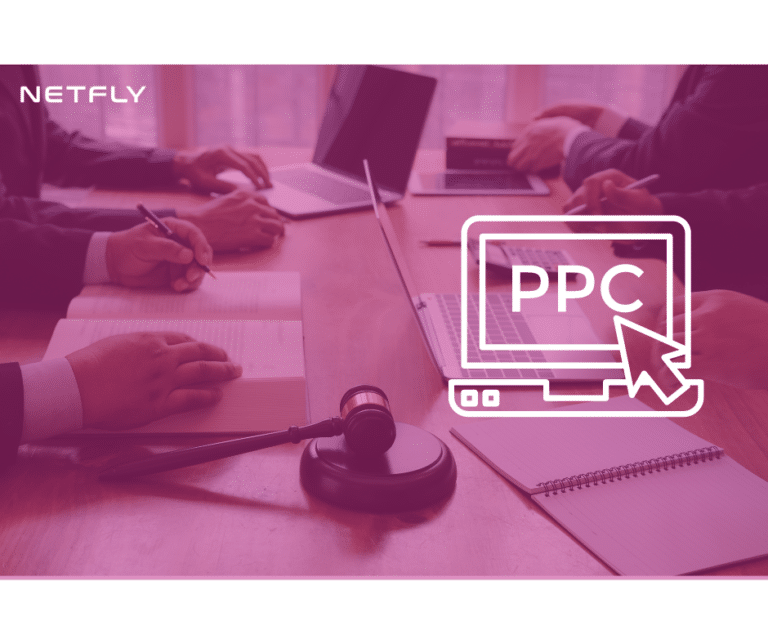To stop losing clients online, you need to craft a law firm website that’s engineered to convert. Start by understanding your audience; use market research to tailor your content and design to meet their specific needs. Ensure your site is mobile-optimized with clear navigation and strategic calls to action on every page to enhance user engagement. Employ SEO strategies by integrating well-researched keywords naturally into your content to drive targeted traffic. Don’t forget to include client testimonials and maintain a consistent brand image to increase credibility. With these steps, you’ll not only retain but attract more clients, uncovering even more methods to optimize your online presence.
Key Takeaways
- Optimize for mobile to ensure accessibility and improve user engagement.
- Implement clear, strategic calls to action to guide user interactions.
- Feature client testimonials and case studies to establish credibility.
- Enhance SEO with targeted keywords for better visibility in search results.
- Incorporate live chat for real-time communication and increased client satisfaction.
Understanding Your Target Audience
Understanding your target audience is essential when designing a law firm website that effectively converts visitors into clients. You can’t afford to overlook the power of detailed market research and the creation of accurate buyer personas. These tools are critical in tailoring your site to meet the specific needs and preferences of your potential clients.
Market research provides you with invaluable data about who your clients are, what they need, and how they make decisions. This information forms the foundation of your website’s content and design strategy, ensuring that every element appeals directly to your intended audience. For instance, if your research shows that most of your clients are businesses seeking intellectual property advice, your website’s design, navigation, and content should all speak directly to these needs.
Creating detailed buyer personas takes this a step further by humanizing the data you’ve collected. These personas represent typical visitors to your site—complete with their legal concerns, preferred communication styles, and decision-making processes. By understanding these personas, you’re better equipped to craft content that resonates, persuades, and ultimately converts them into loyal clients. Remember, a website tailored to your audience isn’t just nice to have; it’s essential for your firm’s success.
Designing for User Experience
With your target audience clearly defined, it’s time to focus on the user experience of your law firm’s website. Securing smooth navigation design and mobile optimization are essential. Today, most potential clients will visit your site using their smartphones. If your website isn’t optimized for mobile, you’re likely to miss out on significant opportunities. Clear, intuitive navigation secures visitors can easily find what they’re looking for, enhancing their overall experience and increasing the likelihood they’ll reach out for your services.
Furthermore, the content layout should be structured to guide visitors naturally towards your goals. By strategically placing calls to action, you can subtly lead users to engage more deeply, whether it’s filling out a contact form or reading a key article. Each page should have a clear focus with a well-defined call to action, positioned prominently to catch the user’s eye without overwhelming them.
Essential Website Features
To effectively convert visitors into clients, your law firm’s website must incorporate several essential features. First and foremost, conversion optimization should be at the heart of your design strategy. This means integrating strong, clear calls to action (CTAs) throughout your site. Whether it’s a prompt to schedule a consultation or download a resource, these CTAs should be visible and compelling, guiding potential clients smoothly through your conversion funnel.
Equally important is maintaining brand consistency. Every element on your site from colors and fonts to the tone of your content should align with your law firm’s brand identity. This consistency not only reinforces your professional image but also builds trust and recognition among your visitors. Imagine a potential client feeling the reassurance of your firm’s steady, reliable presence at each click.
Additionally, include client testimonials and case studies to highlight your expertise and success. These elements serve as social proof, greatly boosting your website’s credibility.
SEO Strategies for Lawyers
Now that we’ve covered the fundamental features your law firm’s website needs to convert visitors into clients, let’s explore how optimizing for search engines can further enhance your site’s visibility and attract more potential clients.
Starting with keyword research, it is important to understand what potential clients are searching for when they need legal services. By identifying specific terms and phrases related to your specialties – whether it involves personal injury, family law, or corporate litigation – you can tailor your content to meet these needs. This isn’t just about guessing; utilize tools like Google Keyword Planner to pinpoint high-volume, relevant keywords that can drive targeted traffic to your site.
Once you’ve identified your keywords, the next step is content optimization. This involves strategically placing your chosen keywords in titles, headings, meta descriptions, and throughout the content itself to boost your search engine rankings. However, it is vital that this incorporation feels natural. Search engines favor content that provides value to readers, not just keyword-stuffed pages. Focus on creating informative, engaging content that addresses your audience’s questions and concerns while naturally integrating your keywords.
Enhancing Client Interaction Online
Enhancing your online client interactions can greatly boost your law firm’s reputation and client satisfaction. In today’s digital age, effective online communication is key to maintaining and increasing client engagement. Here’s how you can improve interaction with your clients online:
- Implement Live Chat Features: Integrate live chat options on your website. This immediate form of communication allows clients to feel valued and attended to without delays, fostering trust and satisfaction.
- Regularly Update Content: Keep your website’s content fresh and relevant. Provide helpful articles, FAQs, and resources that address common legal issues and questions. This not only enhances your SEO efforts but also keeps clients coming back.
- Personalized Email Responses: Make sure that your email communication is not only prompt but personalized. Tailor your responses to each client’s specific needs and inquiries to demonstrate your commitment and attention to detail.
- Interactive Webinars and Q&A Sessions: Host webinars and Q&A sessions that allow direct interaction with potential and existing clients. These sessions can be invaluable for clarifying clients’ doubts and showcasing your expertise.
Frequently Asked Questions
How Often Should I Update My Law Firm’s Website Content?
You should update your law firm’s website content regularly to boost SEO optimization and refine your content strategy. Aim for bi-weekly updates to keep your site fresh and engaging for potential clients.
What Budget Should I Allocate for Website Maintenance?
You’ll want to allocate a budget that covers regular updates and cost analysis, ensuring your website maintenance schedule keeps your online presence strong. Consider investing in quality to avoid frequent overhauls.
Are There Legal Restrictions on Website Data Analytics?
Yes, there are legal restrictions on website data analytics, focusing on data privacy and compliance requirements. You’ll need to guarantee your analytics practices adhere to laws like GDPR and CCPA to avoid penalties.
How Can I Measure the ROI of My Website Upgrades?
To measure your website’s ROI after upgrades, you’ll want to implement conversion tracking and A/B testing. These tools will clearly show which changes are increasing client engagement and boosting your conversions effectively.
What Is the Best Hosting Service for a Law Firm’s Website?
For your law firm’s website, choose a hosting service that prioritizes website security and SEO optimization. These features will enhance your site’s reliability and search engine ranking, attracting and retaining more clients.
Conclusion
Now that you’re armed to the teeth with strategies to enhance your law firm’s online presence, don’t let another potential client slip through the net. By focusing on your target audience, optimizing user experience, and implementing key SEO tactics, your website will not only attract more visitors but convert them into clients. Remember, the proof is in the pudding; a well-designed, interactive website is your best bet for online success. Start making these changes today and watch your client base grow.










